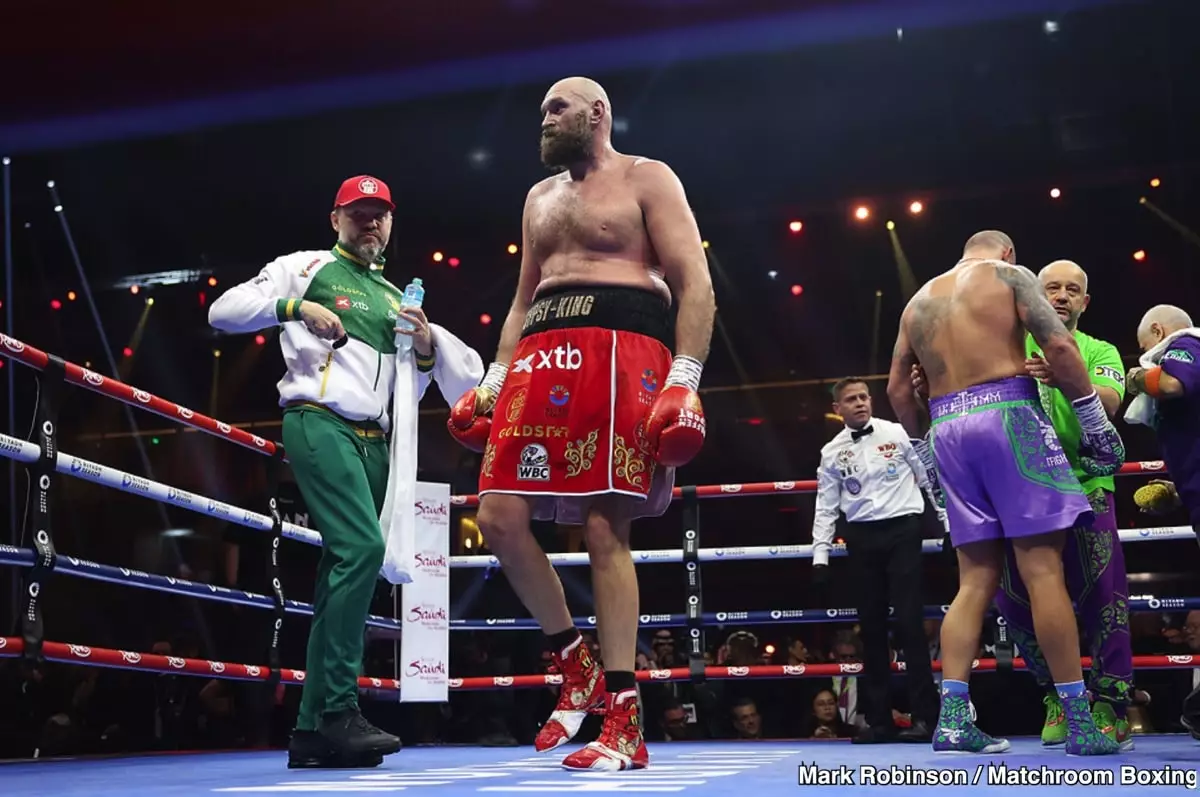In the aftermath of his recent rematch with Oleksandr Usyk, Tyson Fury’s reflection on the fight raises eyebrows not just among fans, but also within the boxing community. Despite the unanimous decision against him, Fury remains resolute in asserting that he won the bout by a substantial margin. By claiming he should have triumphed by three or four rounds, he appears detached from the realities depicted by the fight’s statistics and the judges’ scores, which were uniformly 116-112 in favor of Usyk. This level of denial poses questions about self-awareness and the ability to learn from past experiences—key attributes for any elite athlete aiming to improve and adapt.
When examining the punch statistics following the bout, the numbers present a stark contrast to Fury’s claims. Usyk landed 179 out of 423 punches, achieving an accuracy rate of 42%, compared to Fury’s 144 of 509, resulting in a meager 28% accuracy. This statistical disparity underscores a critical point: in the sport of boxing, outcomes are frequently dictated by effective striking and technique rather than mere size and weight. While Fury expressed confidence in his conditioning, one cannot ignore the evidence that points to Usyk’s superiority in execution.
Fury’s weight at fight time—reportedly around 281 pounds—has sparked debate regarding his physical condition and strategic approach to this particular match. Many analysts argue that such heaviness may have impeded his mobility, especially against a fighter like Usyk, renowned for his speed and evasiveness. Fury’s decision to bulk up, perhaps an attempt to increase his presence in the ring, ultimately backfired. A leaner and more agile Fury, weighing closer to the 250s, might have been more equipped to navigate Usyk’s tactical maneuvers. This misjudgment reflects not only poor fight preparation but also a tendency to favor physicality over technique—an error that is amplified when facing an opponent with Usyk’s style.
Fury’s promoter, Frank Warren, echoed sentiments of Fury’s performance by acknowledging Usyk’s skill but curiously downplaying the effectiveness of Fury’s own strategy. Statements that suggest Fury was barely grazed during the fight serve to insulate the heavyweight from the criticisms he rightfully faces. Such rhetoric may appease Fury’s public persona but could hinder genuine growth in his boxing career. As a champion figure, the need for clear-headed evaluation is crucial in order to pivot towards future bouts effectively.
Fury’s post-fight assertions coupled with the fight statistics suggest a disconnect that could be harmful if not addressed. As the sport evolves, so too must the fighters—never has there been a stronger imperative for athletes to analyze their performances with a critical lens. For Fury, embracing humility and learning from this experience rather than dwelling in denial might be the key to regaining his footing in the competitive heavyweight landscape. The journey ahead will require not just physical adjustment but also a mental recalibration—the question remains whether he can undertake this challenge.

